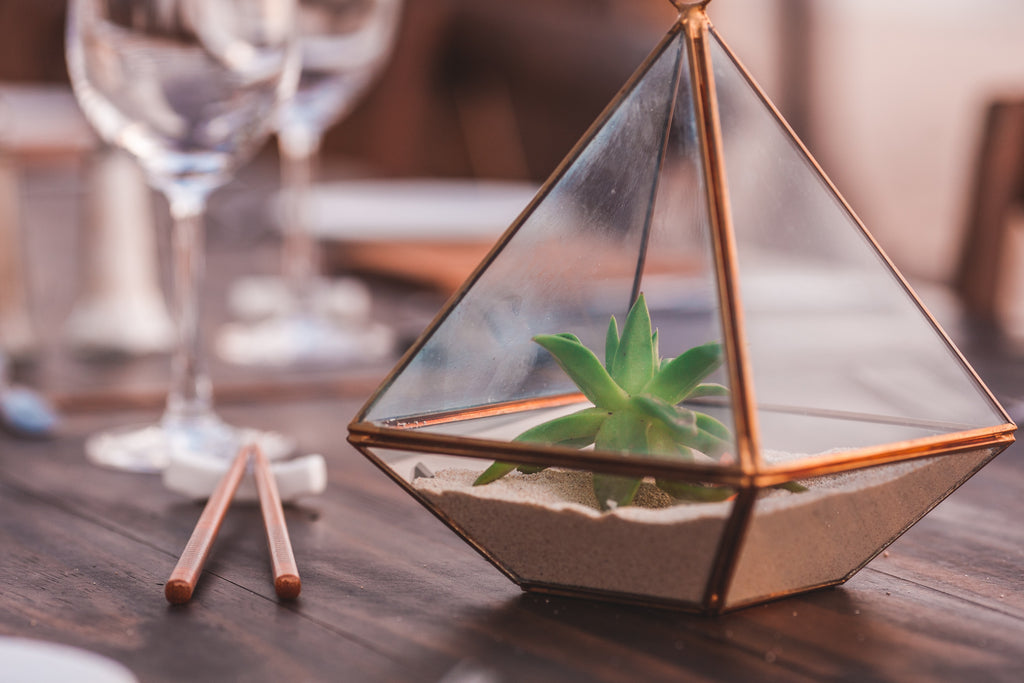Can Succulents Grow In Sand?
by Succulent MarketNov 19, 2020

Succulents are very forgiving plants. They can store water in their leaves and their stems, meaning they’re excellent at not just surviving, but thriving in environments where others would die within days.
But can they grow in sand? More importantly, will they last in sand if you decide to go down that route?
Read on to find out.
Do Succulents Grow In Sand?
The short answer is yes, succulents can grow in sand. In fact, it’s very common to see beautiful arrangements of succulents planted in nothing but sand. And when the sand has a gorgeous color itself, it makes the whole thing even better to look at.
But will they last growing in sand?
Unfortunately, not for long.
If you do want to plant your succulent in sand, then just think of it as a short-term project.
Will Succulents Grow In Sand?
While it’s not ideal, they will survive.
A succulent’s natural habitat is often an environment that other plants would never naturally inhabit. They come from dry areas of the world like the desert or up in the mountains. They are very hardy plants and are able to adapt to their surroundings, even when temperatures get high and humidity drops.
This is why succulents can grow in sand, whereas most plants won’t last a few days before shrivelling up and dying.
Another trait that allows succulents to grow without soil is their excellent ability to store water. Most succulents store water in their leaves, stems and roots. Since their natural environments are mostly dry, they can go without frequent watering for a while.
Further, unlike most houseplants, succulents don’t need a highly organic medium. This means they don’t need soil rich in nutrients - only a fraction compared to what other plants require.
So, overall, while succulents can survive in sand, it’s not the best medium for them to grow. They may look great in a sand-based arrangement, but they aren’t going to last for very long.
Things To Consider When Growing Succulents In Sand
Now, while succulents can survive in sand, the only sand that will work is coarse sand. Succulents will not grow very well, if at all, in fine sand as it retains too much water, making it hard for the roots to breathe.
Succulents in sand will not get as many nutrients as those grown in potting soil. Therefore, it’s a good idea to consider fertilizing the succulent by combining diluted fertilizer with its watering program. This ensures that the plant still gets the nutrients it needs to grow.
The best alternative to growing your succulent in sand is by creating a sand and soil mix. This gives the succulent the best of both worlds: the sand allows water to drain properly and the soil provides the plant with nutrients for growth.
Which Succulents Do Well in Sand?
Now, there are certain succulents that grow better in sand than others, so if you are still keen on using sand, then consider growing one of the following plants:
Corpuscularia lehmannii “Ice Plant”
This is a very drought-tolerant succulent. It has beautiful blue-green leaves and its flower resembles a daisy. However, despite what its name suggests, it’s not a cold hardy succulent so it’s best for growing indoors.
Euphorbia milii “Crown of Thorns”
Crown of Thorns is one of the few succulents with real leaves. They’re thick, fleshy, and tear-shaped. The best thing about it: it can grow in sandy soil.
Agave americana “Century Plant”
This is another succulent that can adapt well to harsher environments. It has large fleshy leaves and will grow well in most soil types.
Aloe ferox “Bitter aloe”
Bitter aloe, also known as Cape aloe, is one of the best species of aloe that can grow in sandy soil. It’s sometimes mistaken as a cactus too due to its thorny leaves. Just bear in mind that aloe plants are not suitable for pets, so if you do have a furry friend, consider planting one another species of succulent.
Senecio serpens “Blue Chalksticks”
The Blue Chalksticks succulent grows from rocky crevices in the wild, so it’s used to sandy environments. It will certainly bring something unique to your arrangement.
